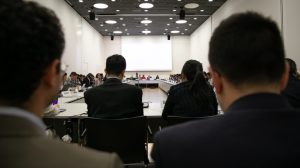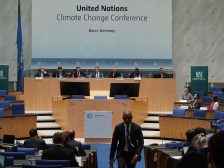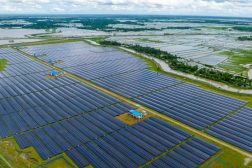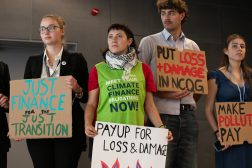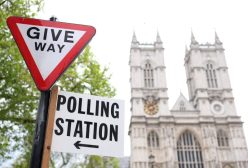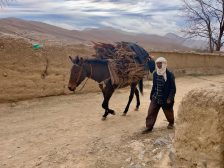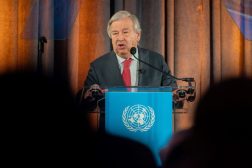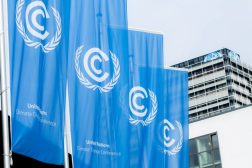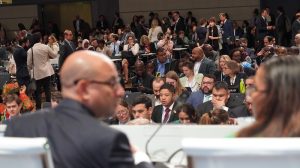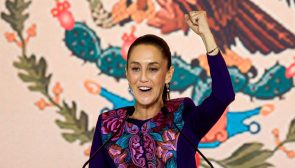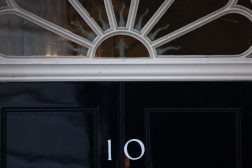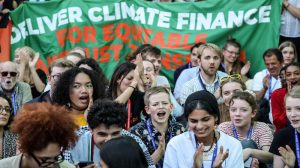Latest climate change news
G7 coal charade: Funding the fire they claim to fight
Rich countries should take concrete steps to stem the global flow of funds from their commercial banks which are fuelling expansion of the coal industry
Bonn talks on climate finance goal end in stalemate on numbers
Negotiations failed to progress as rich countries refused to discuss a dollar amount for the new goal due to be agreed at COP29
Bonn bulletin: Fossil fuel transition left homeless
Countries clash over where to negotiate the shift away from dirty energy agreed at COP28, while talks on a new climate finance goal make little progress
No shortage of public money to pay for a just energy transition
With negotiations underway to establish a new global climate finance goal, wealthy countries are once again trying to shirk their responsibilities
Bonn bulletin: Crunch time for climate finance
Negotiators take on tricky topics in a slimmed-down finance text as UN climate chief calls for country transparency reports to shed light on NDC progress
UK general election: Watch out for climate obstructionism
Climate sceptic groups and their right-wing media allies have shifted from disputing science to exaggerating the economic costs of climate action and downplaying the benefits
Developing countries suggest rich nations tax arms, fashion and tech firms for climate
At Bonn talks, G77 group floats a 5% sales tax on tech, fashion and defence firms to fund green spending in the Global South
North Africa’s disappearing nomads: Why my community needs climate finance
My people are experiencing loss and damage, and deserve international support under a new climate finance goal – negotiators in Bonn and beyond must take heed
Right-wing pushback on EU’s green laws misjudges rural views
Populist and far-right parties are wooing rural voters in the EU elections by exploiting a backlash against green policies – but new research suggests it may not work
UN chief calls on governments to ban fossil fuel ads
António Guterres says many nations have already banned tobacco advertising and should do the same for fossil fuels, reining in “the Godfathers of climate chaos”
Quality – not just quantity – matters in the new climate finance goal
Negotiators in Bonn should work to ensure funding provided under a new goal set to be agreed later this year at COP29 is affordable and accessible
“Great enabler of climate action” – UN urges Bonn progress on new finance goal
UN Climate head Simon Stiell called on countries to start narrowing down options to strike a deal on post-2025 climate finance by COP29 in November
The great COP food systems illusion: UN climate talks deliver no real-world action
Negotiations on food and agriculture have moved too slowly, while special initiatives fail to hold countries accountable on their commitments
Mexico elects a climate scientist as president – but will politics temper her green ambition?
Incoming president Claudia Sheinbaum will need to break with the fossil fuel-friendly policies of close ally AMLO to drive forward climate action, analysts say
On beaches of Gaza and Tel Aviv, two tales of one heatwave
While Palestinians in Gaza fear death from heat in makeshift tents, Israelis in Tel Aviv stay cool in air-conditioned homes – highlighting the unequal effects of extreme weather
Climate, development and nature: three urgent priorities for next UK government
Revitalised global leadership from Britain can make a difference at a deeply troubling and fractured time for world affairs
Despite exit, EU seeks to save green reforms to energy investment treaty
EU ministers have agreed they are free to support reforms to end protection for fossil fuels at a conference in November
Developing countries need support adapting to deadly heat
Many vulnerable people in South Asia are already struggling to protect themselves from unbearably high temperatures – which are set to worsen
Rich nations meet $100bn climate finance goal – two years late
Developed countries gave nearly $116 billion in climate finance in 2022, but experts and campaigners questioned how the target was met
US government backs the carbon credit industry’s push to fix itself
The Biden administration throws its weight behind the industry’s attempts to boost integrity in the beleaguered market

